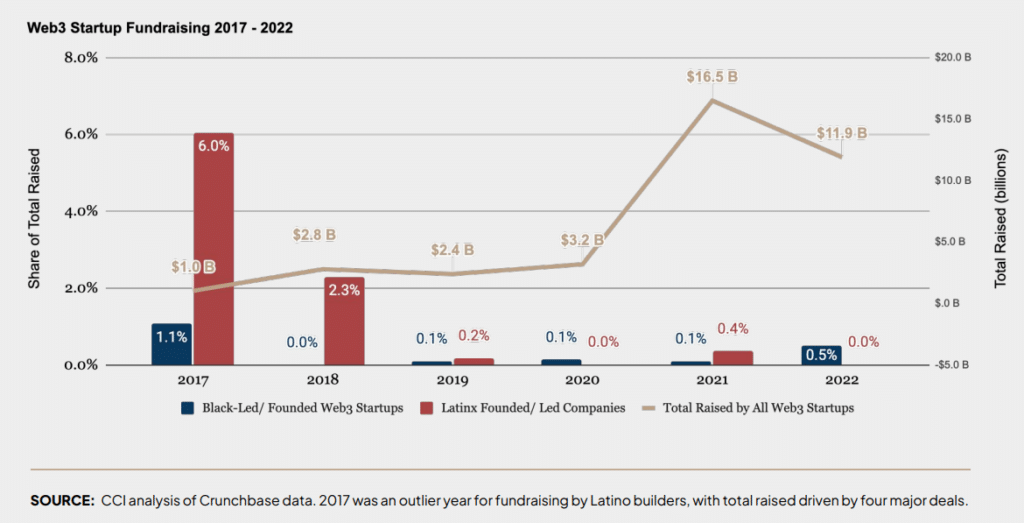
Angel investors are seed-stage financiers who offer mentorship to nascent businesses for equity, while venture capitalists inject substantial capital into later-stage firms.
Angel investors and venture capitalists are two types of private investors who provide funding for early-stage and growth-stage companies. However, there are some key differences between them that we will cover in this article.
Who are angel investors?
High-net-worth individuals who invest in companies at an early stage in exchange for equity in the business are known as angel investors. They frequently invest their own funds and take a more active approach to investment, offering advice and mentoring to the businesses they support. The well-known angel investors in the crypto world include:
- Roger Ver — He is known as “Bitcoin Jesus” and is an early investor in Bitcoin (BTC) startups, such as Blockchain.info, BitPay and Kraken.
- Barry Silbert — He is the founder and CEO of Digital Currency Group, which invests in and acquires cryptocurrency-related companies.
- Naval Ravikant — He is the co-founder of AngelList and has invested in projects such as MetaStable, Algorand and others.
- Charlie Lee — He is the creator of Litecoin and has invested in a number of other cryptocurrency-related startups.
Who are venture capitalists?
Investors who fund startups and early-stage businesses with significant room for growth are known as venture capitalists (VCs). They frequently belong to a professional investment firm or fund and typically make larger investments than angel investors.
Related: Venture capital financing: A beginner’s guide to VC funding in the crypto space
They obtain equity in the business in return for their investment, and they frequently have a say in how the business is operated. When the firm eventually goes public or is acquired, VCs hope to profit by selling their equity. Some well-known VC firms include:
- Andreessen Horowitz
- Blockchain Capital
- Coinbase Ventures
- Digital Currency Group
- Polychain Capital
- Pantera Capital.
Differences between angel investors and venture capitalists
Stage of investment
Angel investors frequently contribute seed money to startups by making investments in early-stage businesses. On the other hand, venture capitalists frequently make investments in later-stage businesses that have already demonstrated strong growth potential.
Size of investment
Compared to venture capitalists, angel investors often invest less money. Unlike venture capitalists, who might invest millions of dollars in a firm, angel investors often make investments between $10,000 and $100,000.
Involvement in the company
Angel investors frequently adopt a hands-off strategy and do not actively participate in the company’s operations. On the contrary, venture capitalists frequently support the management of the businesses they invest in, both strategically and operationally.
Exit strategy
Angel investors often have a longer investment horizon and can withdraw their money through an initial public offering (IPO), merger or acquisition. Conversely, venture investors often want to sell their investments within a period of five to seven years through an IPO or acquisition.
Source of funds
High-net-worth individuals who invest their own money are angel investors. On the other side, venture capitalists oversee money for high-net-worth individuals or institutional investors and use that money to make investments.
Risk tolerance
Angel investors are generally more willing to take on higher levels of risk than venture capitalists, who are more focused on minimizing risk.
Investment criteria
Angel investors may be more flexible in their investment criteria, while venture capitalists have more stringent criteria and require companies to meet specific milestones and targets.
Portfolio diversification
Angel investors tend to have a more diverse portfolio, while venture capitalists may have a more concentrated portfolio with a focus on a specific industry or sector.
Weaknesses of angel investment vs. venture capital
The above differences highlight the approaches and priorities of angel investors and venture capitalists in the cryptocurrency industry. Both have their own weaknesses, and startups may choose to work with both depending on their specific needs and goals.
The weaknesses of angel investments include:
- Limited funds: Angel investors frequently invest less money than venture capitalists, which may restrict the size of firms they may support.
- Lack of due diligence: When making investment decisions, angel investors may rely too heavily on instinct and personal relationships, which might raise the chance of failure.
- Long-term commitment: Angel investments are typically made for the long term and may not offer an exit option for either the investor or the startup.
The weaknesses of venture capital include:
- High expectations: Venture investors frequently have high standards for companies and may ask them to achieve particular benchmarks and goals.
- Short-term focus: Venture capitalists are frequently driven to realize their investments within a specific time frame and often have a stated exit strategy.
- Control: Venture capitalists may have little power to influence important decisions in the firms they fund.
Regardless of the above shortcomings, the process of securing funding from investors can help validate a startup’s business model and increase its visibility in the market.





